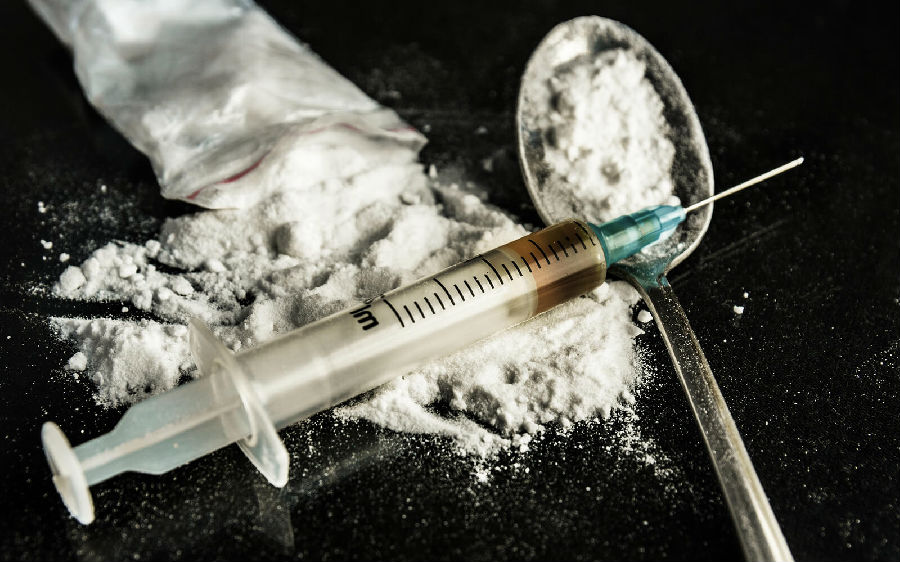Pharmaceutical companies helped spark this epidemic by aggressively marketing opioids as low-risk solutions for long-term chronic pain.
这一疫情一定程度上也跟药企大力鼓吹阿片类药物不仅能够治疗慢性疼痛,风险还低的做法有关。
We now know that they’re anything but low-risk—and yet drugmakers have continued to push opioids and reward doctors who prescribe them.
如今我们已经知道这种药物的风险丝毫不低,但药企仍在继续推销,继续给开处方的医生回扣。
Attempts to crack down on prescriptions have helped,
尽管打击处方医生乱开药的措施起到了一定作用,
but Americans are still prescribed far more opioids than anyone else in the world—
但美国开出的阿片类止痛药数量仍然远超世界其他国家——
enough for almost every adult in the country to have their own bottle of pills.
其数量足以让每个成年人都分到一瓶。
Political efforts in Washington have also been insufficient.
目前,政府在这方面采取的措施仍显不够。
In October, the White House declared a public-health emergency, but did not grant any additional money for the crisis.
10月份,白宫虽然宣布了一项突发性公共卫生事件,但并没有为此次危机提供任何额外的资金。
The position of drug czar remains unfilled, and a limit on Medicaid reimbursements for large facilities remains in place,
缉毒专员的虚席仍有待补上,医疗补助计划对大型设施的补偿限额也仍然存在,
though the President’s own opioid commission suggested that lifting it would be "the single fastest way to increase treatment availability across the nation."
尽管总统自己的阿片类药物委员会认为放宽政策是“唯一一个能够最快速度提高全国就医机会的办法”。
This issue of TIME, the first in our 95-year history devoted to the work of a single photographer, is an effort to go beyond charts and policy.
本期《时代》周刊,创刊95年来我们首次选用了同一摄影师的摄影作品,宗旨就在于突破条条框框。
Over more than three decades, James Nachtwey has photographed war, famine and terror around the world for TIME.
三十多年的时间里,詹姆斯·纳赫特威一直奔波于世界各地,为本刊拍摄战争、饥荒和恐怖活动等主题的素材。
He was at the Twin Towers as they crumbled on Sept.11 and in Baghdad as American tanks rolled in.
911事件发生时,他就在双子塔里,而我们国家的坦克开进巴格达时他也在现场。

His haunting images of withered bodies in Somalia put a spotlight on starvation there, helping save 1.5 million people.
他在索马里拍摄的那些枯萎的尸体至今令人难以忘怀,正是他的那些照片让人们开始关注那里的饥饿问题,从而拯救了150万人的性命。
Nachtwey goes where others desperately try to flee,
越是别人拼命想要逃离的地方,越是纳赫特威要去的地方,
enduring gunfire and grenades out of the belief that the only way to stop the suffering is by bearing witness to it.
他甘愿冒着枪声和炸弹,因为他坚信,唯有亲眼见证,方能摆脱苦难。
Last year, we asked Nachtwey to bear witness to a pressing human crisis in his home country.
去年,我们邀请纳赫特威来见证发生在他祖国的一起迫在眉睫的人类危机。
He and TIME’s Paul Moakley spent months on the streets of Boston and San Francisco,
他和本刊的保罗·莫克利花了好几个月的时间在波士顿和旧金山的街头调查,
on patrol with first responders in Ohio, New Mexico and West Virginia,
还与俄亥俄州,新墨西哥州和西弗吉尼亚州的救援人员一起巡逻,
inside jail cells in Kentucky, funerals in New Hampshire and prayer meetings in Massachusetts.
进肯塔基州的监狱牢房,甚至还参加过新罕布什尔州的葬礼和马萨诸塞州的祷告会。
In all, they made thousands of pictures and videos and conducted more than 200 interviews.
最后,他们拍摄了数千张照片和视频,采访次数累计200多次。
On the pages that follow, Nachtwey’s images are paired with voices and stories from the people on the front lines.
接下来的内容是纳赫特威拍摄的照片以及一线工作人员的讲述。
The result is a human accounting of the toll opioids are taking on American life, the people behind the statistics.
合起来就是一个讲述阿片类药物如何破坏美国人的生活以及数据背后的人的故事。
译文由可可原创,仅供学习交流使用,未经许可请勿转载。













